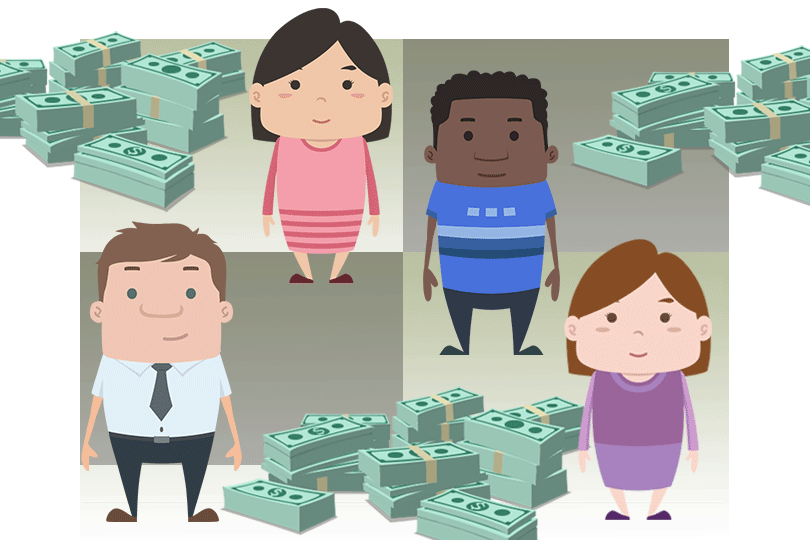When is the Right Time for an FHA Cash-Out Refinance?
December 5, 2024
One key rule is the "seasoning requirement." Think of it like a waiting period: you generally need to own your home for at least one year before you can apply for an FHA cash-out refinance. This allows you to demonstrate a stable ownership history and build some equity.
Of course, there are exceptions to every rule. Life throws curveballs, and situations like divorce or a sudden jump in your property value might shorten the waiting period. These are usually handled case-by-case, so be prepared to provide documentation to support your situation.
Connecting with an FHA-approved lender is always the best way to get the most accurate information. They can explain your situation's specific requirements and help you gather the necessary paperwork.
Building Equity: Your Home's Growing Value
Beyond meeting the FHA's requirements, it's smart to give your equity time to grow. Equity is like your ownership stake in your home—the bigger it is, the more financial freedom you have. It's calculated by taking your home's current market value and subtracting what you still owe on your mortgage.
Several factors contribute to your home equity increasing. For example, every time you make a mortgage payment, a portion chips away at your loan balance, increasing your ownership. Secondly, property values increase over time, especially in desirable neighborhoods.
This natural appreciation boosts your equity without you having to lift a finger.
Finally, strategic home improvements that add value to your property also play a role in growing your equity.
By waiting and allowing your equity to increase, you'll have access to more funds when you do a cash-out refinance. This gives you more financial flexibility and puts you in a stronger position to achieve your goals.
Why Pumping the Brakes Can Pay Off
While accessing quick cash might sound appealing, rushing into an FHA cash-out refinance soon after buying your home can have some downsides.
If you haven't built up enough equity, you might not be able to access as much cash as you need. This could make it harder to accomplish your goals, whether it's tackling those credit card balances or finally remodeling that outdated bathroom.
Remember those closing costs that come with buying a home? Well, they apply to refinancing too. Things like appraisal fees, loan origination fees, and title insurance can add up. Refinancing too quickly means paying these costs multiple times, which could affect your potential gains.
Depending on the market and your credit score, the interest rate on your new loan might be higher than your original mortgage rate. Refinancing too soon could mean paying more in interest over the life of your loan.
Finally, if you haven't had enough time to settle your finances after buying your home, taking on more debt through a cash-out refinance could strain your budget, especially if unexpected expenses come up.
By waiting and building equity, you can minimize these risks and set yourself up for a more successful refinance down the road.

FHA Loan Articles
February 17, 2025The federal government backs FHA home loans, which allows participating FHA lenders to offer lower down payment options and more lenient credit requirements. How much do you really know about your FHA home loan options and how they compare to other mortgage choices?
February 13, 2025For many college graduates, student loan debt is a concern. A common question is how this debt impacts the ability to buy a home. This Q&A explores the relationship between student loans and FHA loan approvals. How much do you know about how your student loan debt affects your ability to be approved for a mortgage?
February 12, 2025Choosing between FHA and conventional home loans can be daunting for some first-time home buyers. What are the concerns between these two programs, and what does each one offer the borrower? We examine some of the key issues in our question-and-answer session about FHA mortgages versus conventional loans.
February 11, 2025Established in 1934 as part of the National Housing Act, the FHA's primary mission is to stimulate the housing market by providing mortgage insurance to lenders. This insurance reduces the risk associated with lending to borrowers who may otherwise be considered higher risk, encouraging lenders to offer more favorable terms, such as lower down payments and more flexible credit requirements. A key element of the FHA program is its commitment to fair housing, which is deeply rooted in the Fair Housing Act.
February 10, 2025How much do you really know about the home buying process? One major factor in protecting your new investment is knowing how the title search process works and why you need to have one done. This quiz will assess your comprehension of what a title search entails, why it's so important when using an FHA loan, and how it protects you as a buyer. From identifying potential liens to guaranteeing clear ownership, a title search plays a critical role.







